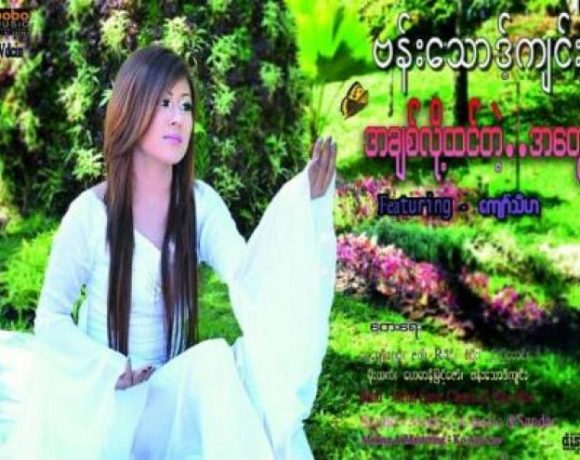New CNF-Govt Agreement Defines Terms of Peace Process

9 May 2012: A new agreement between the Burmese government and the armed resistance group Chin National Front this week has defined the terms of the peace process, bringing more clarity to the 9-points preliminary cease-fire agreement in January 2012, and paving a way for greater level of trust between the two former adversaries.
Scheduled for a two-day discussion on 7-8 May, the negotiation between the CNF and the Burmese Union-level delegation wrapped up in just one day, as much of the proposals put forward by the Chin side were agreed to by the Burmese delegation.
The agreement, signed between Burmese Railway Minister Aung Min and Dr. Sui Khar of CNF outlines specific terms of reference (ToR) for each of the nine-point original agreement between the two parties early this year. The stated rationale is to ensure that both parties observe the ceasefire to avoid military confrontation in order to move the peace process forward so that they can work together towards a permanent political settlement of the long-standing conflict in Burma.
Speaking to Chinland Guardian from Hakha, Dr. Salai Ngun Cung Lian, the CNF delegation’s spokesperson who participated in the previous negotiation said, “We feel that there has been more openness from the government side compared to the first round of negotiation. The fact that the negotiating team from their [government] side now includes different government ministries, as well as military command structure, shows their seriousness about this [peace] process.”
The Burmese side was represented by Railway Minister Aung Min as chief negotiator, and accompanied by Forestry Minister Win Htun, two Deputy Ministers from the Electricity Energy (1) and Border and Security Affairs Ministry, Deputy Attorney-General, General Zaw Win from the Department of Defense and key representatives from the Northwestern and Western Commands – both of which has command responsibility for Chin State. State-level delegation included Chief Minister Hung Ngai and Col. Zaw Min Oo, Border and Security Affairs Minister.
The CNF side was represented by a 17-member delegation led by Dr. Sui Khar as chief negotiator and Dr. Salai Ngun Cung Lian as a deputy.
For the first time since the initial peace negotiation with the ethnic armed groups began late last year, the CNF-Burmese govt. talks included third party independent observers with representatives of the Norwegian Peace Initiative and the Chin Human Rights Organization (CHRO). Ashley South from the NPI and Salai Bawi Lian Mang of CHRO were present in the meeting to observe the talks.
However, the parties did not arrive at an agreement on two points due to technical reasons.
According to the CNF delegation spokesperson, the two points are on the Special Economic Zone and the proposal on the CNF side to freely distribute past and current CNF publications to the Chin public. Salai Ngun Cung Lian told Chinland Guardian that in the case of the SEZ the government is rewriting the law regarding SEZ and that it would be futile to define the terms while there would be a new law governing the Special Economic Zone. He said that the government peace team has pointed out that allowing the CNF publication to be distributed freely would amount to infringing on the mandate of the Censorship Board, and that the delegation will consult with the Board first.
Some Highlights of the 15-Point Terms of Reference
A 15-points term of reference was agreed upon in the meeting, which will be observed by both parties during the peace process that will be subject to monitoring by peace facilitator with the participation of civil society groups. The following is the highlights of summary of the agreement based on the actual text obtained by Chinland Guardian, as well as based on an interview with the CNF representative.
• Both parties working towards the re-recognition of 20th February as Chin National Day, which has been banned by the previous junta and replaced with Chin State Day – a move Chin people see as an attempt to eliminate their ethnic identity. A separate day will be celebrated as Chin State Day on January 3 as Chin State Day instead – the day the Socialist government granted statehood to then Chin Special Division. The goal is to have pronouncements officially entered into the Official Gazette.
• Chin nationals living abroad will be allowed to come back and visit freely to Chin State, with the Union Peace Team issuing special pass or visas for them.
• Both parties will cooperate in making sure that there is no religious discrimination against any religious groups
• Both parties cooperate in curbing human rights violations in the forms of forced labor and other violations
• To institute an independent peace monitoring body with the primary role for the Chin Peace and Tranquility Committee that will also be inclusive of all strata of Chin civil society
• To separately establish two tiers of mediating body (both at the state and union level) consisting of civil society groups that will be mandated to arbitrate peaceful resolution of dispute in the event of serious disagreement or breaches of contract between the two parties
• Unconditional amnesty will be granted to any persons who have been arrested and jailed on grounds of association with Chin National Front
• To undo the designation of CNF as an unlawful organization






